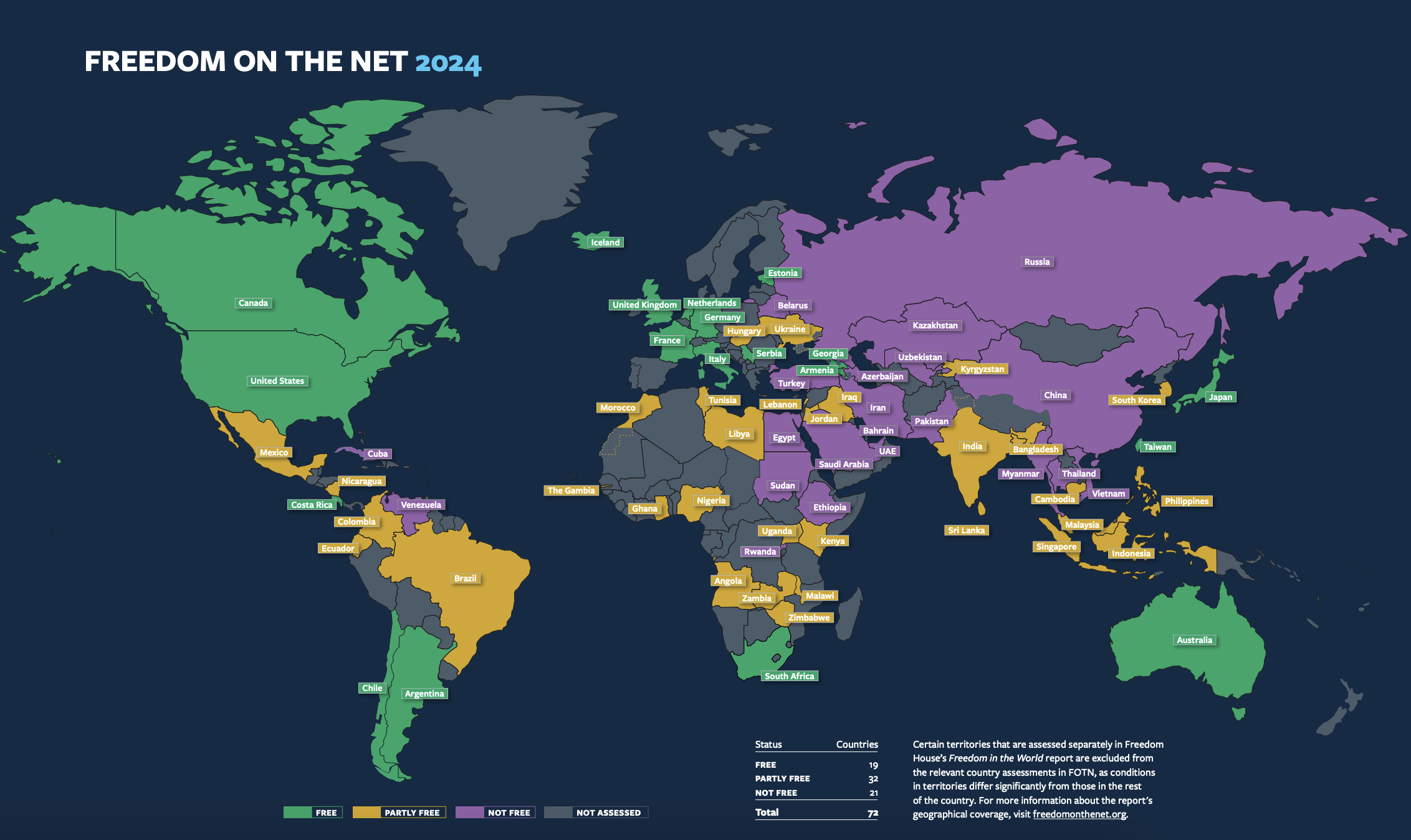Levent Kenez/Stockholm
According to the “Freedom on the Net 2024: The Struggle for Trust Online” report released on Tuesday by Freedom House, Turkey remains categorized as “not free” regarding internet freedom. The report highlights the increasing control of President Recep Tayyip Erdogan’s government over the digital sphere, particularly through regulations on social media platforms. There has been a notable rise in censorship, surveillance and the restriction of online speech, making it difficult for citizens, in particular journalists and dissidents, to freely express opinions. Additionally, new laws that require social media companies to store data locally and comply with content removal requests further erode online freedoms in Turkey.
The report states that Turkey is among the countries where government intervention and pressure on digital platforms are rising, leading to concerns about access to independent information and privacy violations.
In Turkey laws targeting social media platforms have become more restrictive in recent years, resulting in heavy fines or even the potential for platform shutdowns if companies do not comply with content removal demands or local data storage requirements. The report points out that these measures are part of a larger strategy to exert more control over digital communication channels, particularly those critical of the government. Moreover, Turkey has introduced laws that put additional pressure on platforms like X, Facebook and Instagram to remove undesirable content as demanded by the government, including content labeled as fake news or politically sensitive posts that challenge the administration. Whether a news report is classified as “fake news” is entirely determined by the judiciary, which is under the control of the Erdogan government.
In September 2022 the Turkish parliament introduced a new social media law, labeled by the government as a measure against disinformation but criticized by the opposition as a censorship law. The law, amending the Turkish Penal Code, introduced the crime of “publicly disseminating misleading information,” punishable by up to three years in prison, with harsher penalties for offenses linked to terrorism.

With the new articles being added to the Turkish Penal Code, the crime of “publicly disseminating misleading information” was defined for the first time. A person who spreads disinformation is defined as “a person who publicly disseminates false information about the internal and external security, public order or general health of the country in a way that is suitable for disturbing the public peace, with the sole aim of creating anxiety, fear or panic among the public. Those who commit this crime will be sentenced to imprisonment of between one and three years. If the accused hides it or commits it within the framework of terrorist organization activity, the penalty will be increased by half.”
The 2024 Freedom House report emphasizes the growing trend of online censorship in Turkey, where thousands of websites have been blocked. The government regularly issues takedown requests targeting online platforms, often citing security concerns or disinformation as justification for these actions.
Surveillance is another area of concern highlighted in the report. Turkey has increasingly used digital surveillance tools to monitor online activities, especially those of political dissidents and activists. The lack of robust data protection laws in the country raises concerns over privacy violations, as citizens’ data is often collected and stored without adequate safeguards. The requirement for social media platforms to store user data locally in Turkey also presents risks as it makes personal data more accessible to local authorities, potentially for misuse.
Turkey’s declining internet freedom has had a direct impact on the country’s media landscape. Independent news websites, blogs and social media platforms have become essential spaces for free expression, especially since many traditional media outlets are under government influence. However, the increasing legal pressures and threats to online spaces have eroded this freedom, forcing many journalists and activists to self-censor to avoid legal repercussions.
Meanwhile, in its Global Transparency Report for the first half of 2024, X, formerly known as Twitter, revealed data on account closures, content removal requests and information requests from judicial and administrative authorities worldwide. Japan topped the list with 46,648 removal requests, of which X fulfilled 36,731. Turkey followed with 9,364 requests, with X complying with 6,332 of them.
The Freedom House report:












